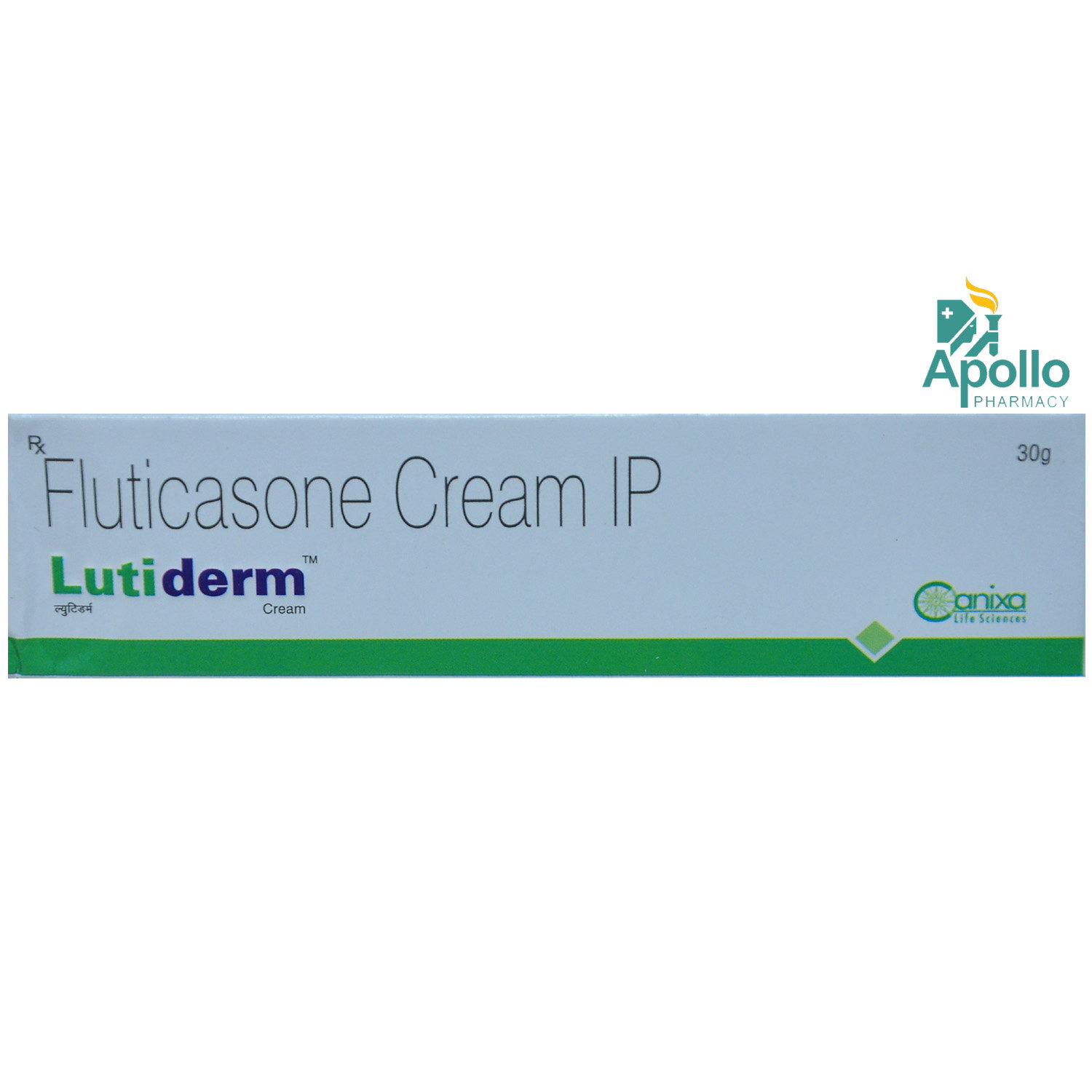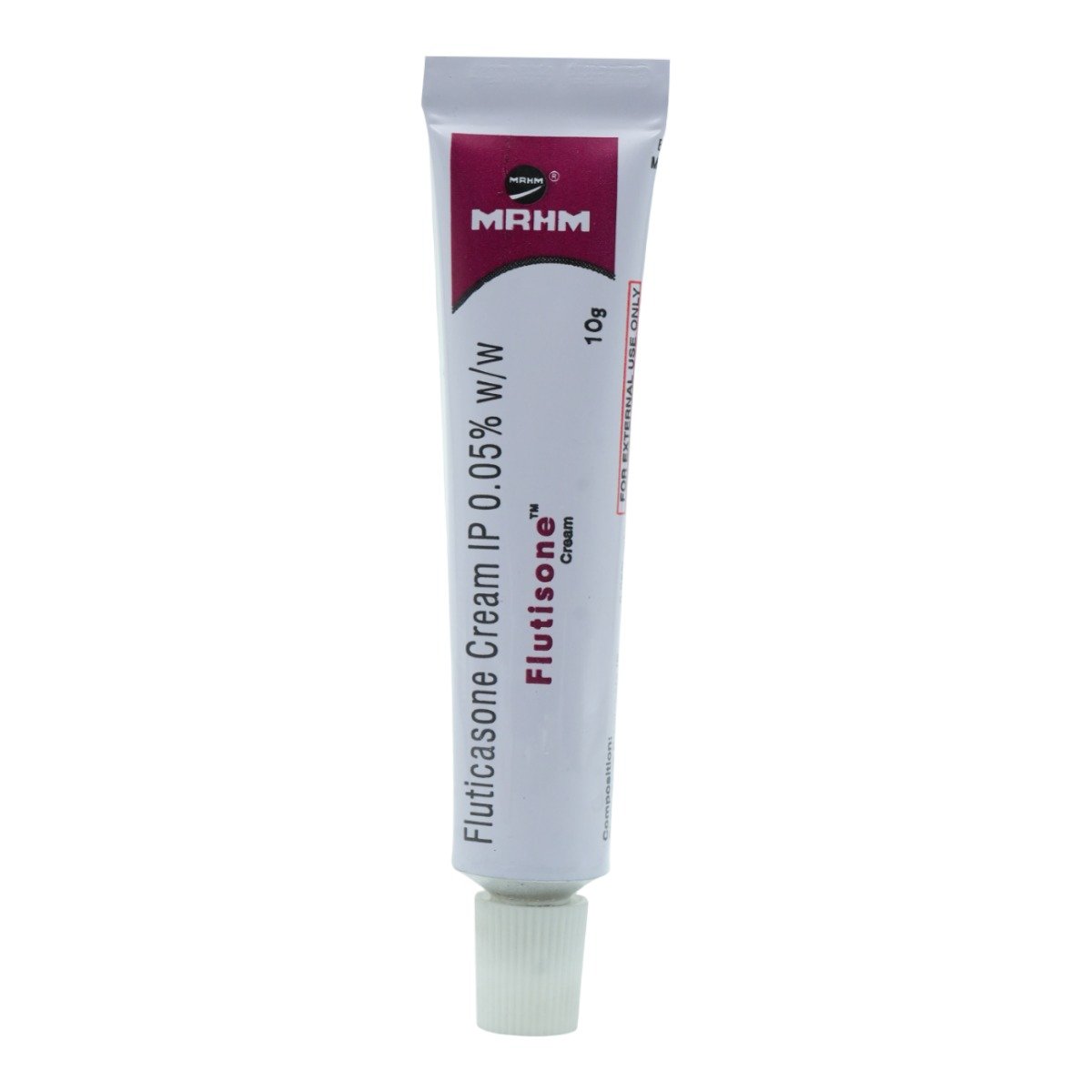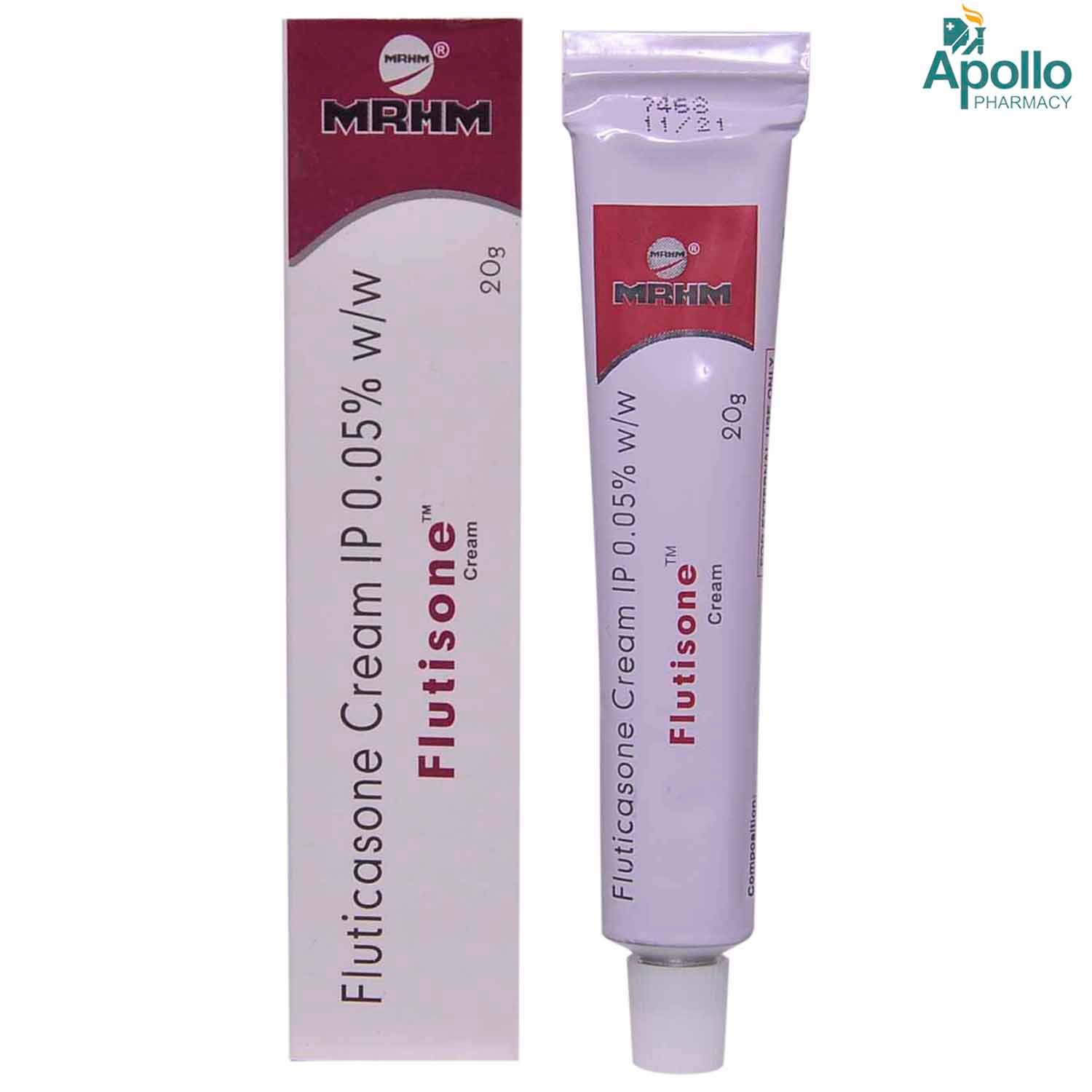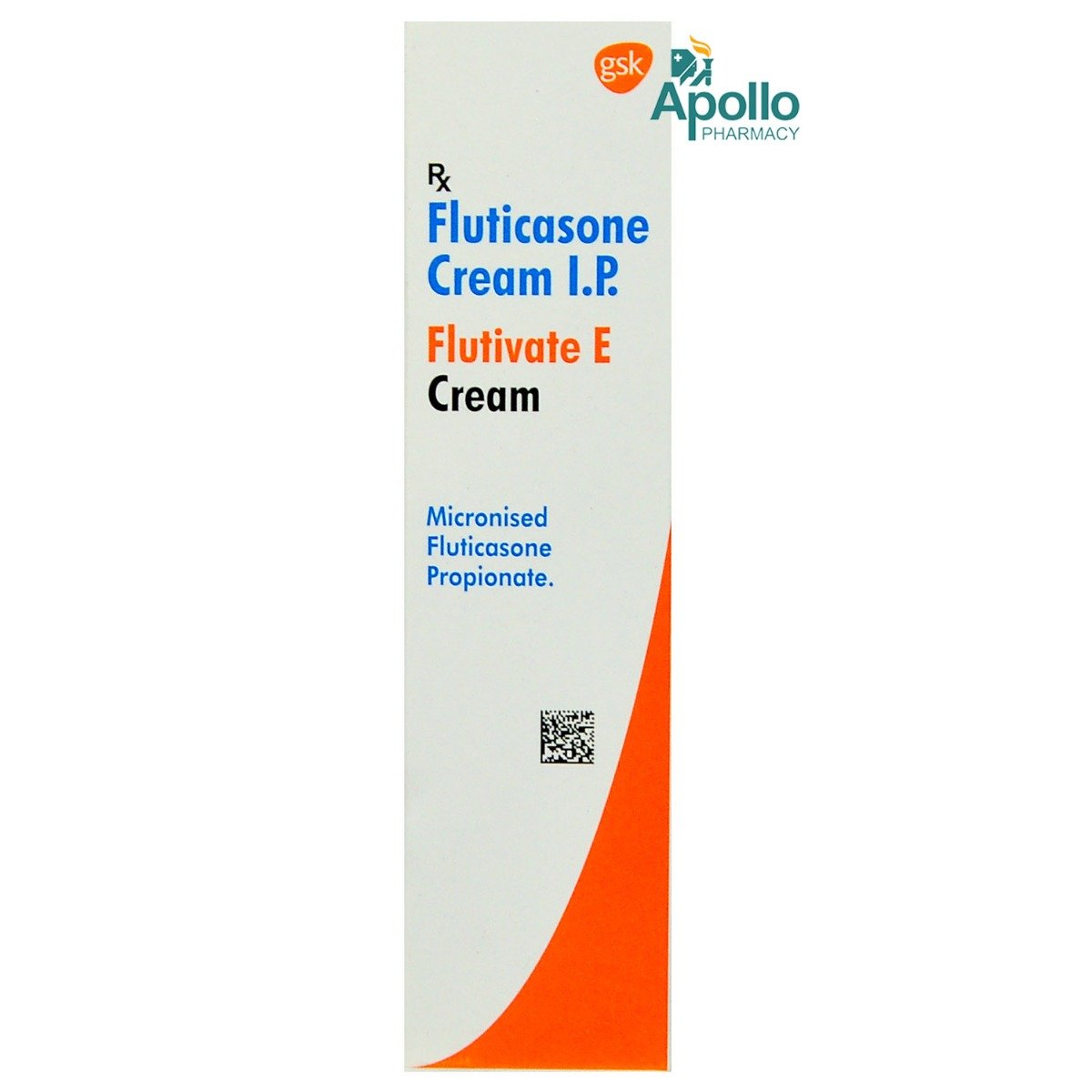- Home
- Flutivate Cream
Flutivate Cream Substitute
Flutivate Cream Substitute
Medicine Composition:
FLUTICASONE PROPIONATE-0.05%W/WAll Substitutes & Brand Comparisons
RX
Out of StockCazon D Cream
Adips Laboratories Ltd
₹93
(₹4.19/ 1gm)
74% CHEAPERRX
Out of StockFlutinir Cream 30 gm
Nirvair Lifesciences Pvt Ltd
₹158
(₹4.74/ 1gm)
71% CHEAPERRX
Out of StockFusicone Cream
Hacks & Slacks Healthcare
₹130
(₹5.85/ 1gm)
64% CHEAPERRX
Out of StockFutoz Cream
Canbro Healthcare
₹66.8
(₹6.01/ 1gm)
63% CHEAPERRX
Out of StockCutifute Cream
Remedial Healthcare
₹79.6
(₹7.16/ 1gm)
56% CHEAPERRX
Flupic 0.05% Cream 15 gm
Atopic laboratories Pvt Ltd
₹131
(₹7.86/ 1gm)
52% CHEAPERRX
Out of StockFlutiocean Cream 20 gm
Skinocean Pharmaceuticals
₹159
(₹7.95/ 1gm)
52% CHEAPERRX
Out of StockIvason 0.05% Cream
₹89.9
(₹8.09/ 1gm)
51% CHEAPERRX
Lutiderm Cream 30 gm
Canixa Life Sciences Pvt Ltd
₹283
(₹8.49/ 1gm)
49% CHEAPERRX
Out of StockAlbaflut Cream 10 gm
Albatross Healthcare Pvt Ltd
₹96
(₹8.64/ 1gm)
48% CHEAPERRX
Flutisone Cream 10 gm
Abbott India Ltd
₹120.5
(₹10.85/ 1gm)
34% CHEAPERRX
Out of StockAraflut 0.05% Cream
₹125
(₹11.25/ 1gm)
32% CHEAPERRX
Flutisone Cream 20 gm
Mrhm Pharma Pvt Ltd
₹262.5
(₹11.82/ 1gm)
29% CHEAPERRX
Flutivate E Cream 30 gm
GlaxoSmithKline Pharmaceuticals Ltd
₹414.5
(₹12.44/ 1gm)
25% CHEAPERRX
Out of StockFlutivate Cream 10 gm
GlaxoSmithKline Pharmaceuticals Ltd
₹177
(₹15.93/ 1gm)
4% CHEAPER

When Should You Consider Switching from Flutivate Cream?
Patients may explore substitutes in the following scenarios:
- High monthly cost of Flutivate Cream
- Non-availability in local pharmacies
- Generic recommendation by a doctor
- Side effects or better tolerability with alternatives
What to Know Before Switching
Before you switch from Flutivate Cream to another medicine, here are some important points to keep in mind:
Same salt, different brands:
Most substitutes contain the same active ingredient - FLUTICASONE PROPIONATE-0.05%W/W, but the fillers, coating, or manufacturing quality may vary slightly.
Consult your doctor first:
Even if the salt is the same, your doctor can confirm if the substitute is right for your condition, dosage, and health history.
Watch out for allergies or reactions:
Some people may react differently to certain brands due to inactive ingredients. If you notice any side effects, inform your doctor immediately.
Price ≠ effectiveness:
A lower-priced substitute doesn't mean it's less effective. Many generic medicines work just as well as branded ones.
Check the dosage form and strength:
Always match the substitute’s strength (e.g., 5mg, 10mg) and form (tablet, capsule, syrup) with what your doctor prescribed.
Uses
Flutivate Cream is used in the treatment of psoriasis, eczema, contact dermatitis, lichen Planus (a type of rash), and lupus. The detailed uses of Flutivate Cream are as follows:
- Eczema Treatment: Flutivate Cream is commonly used to relieve symptoms of eczema, such as itching, redness, and inflammation on the skin.
- Psoriasis Management: Flutivate Cream can help in managing psoriasis by reducing plaques and scaling, leading to improved skin appearance and comfort.
- Allergic Reactions: Flutivate Cream can be applied to the skin to treat allergic reactions, alleviating discomfort and decreasing the skin’s inflammatory response.
- Dermatitis Relief: Flutivate Cream is effective in treating various types of dermatitis, particularly contact dermatitis, by soothing irritation and promoting healing.
- Autoimmune Skin Conditions: Flutivate Cream is sometimes prescribed for autoimmune-related skin conditions, helping to reduce symptoms associated with these disorders.
Medicinal Benefits
Flutivate Cream is used to treat skin conditions such as psoriasis, eczema, contact dermatitis, lichen planus (a type of rash), and lupus. Flutivate Cream contains Fluticasone propionate, which reduces swelling, redness, and itching by inhibiting the production of certain chemical messengers in the body that cause inflammation. Thus, Flutivate Cream aids in treating skin conditions such as psoriasis, eczema and dermatitis.
FAQs
The substitutes of Flutivate Cream contain the same active salt(s) - FLUTICASONE PROPIONATE-0.05%W/W. However, they may differ in price, manufacturing quality, and inactive ingredients. Speak to your doctor to find a suitable option.
Switching to a generic substitute medicine in the place of Flutivate Cream is often possible if it has the same salt, strength, and dosage form. But always check with your doctor before making any changes to your medication.
Generics versions of Flutivate Cream are typically more affordable because they don’t include the original brand's research, development, and marketing costs. They contain the same active ingredient and are approved for safety and effectiveness.
Most people don’t notice any difference. However, some may react to different fillers or coatings. If you notice any unusual symptoms after switching, consult your doctor.
Make sure the new medicine has the same active salt, strength, dosage form. Always confirm the change with your doctor or pharmacist.
Substitutes of Flutivate Cream meet the same safety and efficacy standards as Flutivate Cream, but small differences in absorption or formulation can exist. A doctor can help you choose the right one for your needs.
Yes. Substitutes of Flutivate Cream may vary in color, size, or shape due to differences in manufacturing and branding, but this does not affect how they work.
Yes, it’s generally safe to switch between multiple substitutes of Flutivate Cream if they have the same salt and strength. However, always inform your doctor so they can monitor how your body responds.
Yes, many people safely use substitutes of Flutivate Cream for long-term treatment. Just ensure it’s done under medical supervision.
If your symptoms stay under control or lab results remain stable, the substitute for Flutivate Cream is likely working well. Regular follow-ups with your doctor are important.
Absolutely. Even with the same salt, small differences can affect how your body responds when switching from Flutivate Cream to its substitute. Always consult your doctor before switching.
Flutivate Cream is used to treat itching, swelling, and irritation in skin conditions such as psoriasis, eczema, contact dermatitis, lichen planus (a type of rash), and lupus.
Flutivate Cream decreases swelling, redness, and itching by preventing the generation of chemical messengers in the body that induce inflammation. As a result, Flutivate Cream assists in treating various inflammatory skin disorders.
Long-term use of Flutivate Cream can thin your skin and develop stretch marks. Therefore, use Flutivate Cream only for as long as it has been prescribed by the doctor.
After a few days of using Flutivate Cream, your condition should begin to improve. Speak with your doctor if your condition does not improve after four weeks or if it worsens at any point.
No, it is not recommended to use Flutivate Cream on broken skin, cuts, or itchy skin that is not inflamed or red.
Do not apply Flutivate Cream to your face unless directed by a doctor as the skin on the face is sensitive. If your doctor prescribes, use Flutivate Cream on your face carefully.
Flutivate Cream may cause side effects such as itching, burning sensation, increased erythema (redness of the skin), urticaria (skin rash), irritation, and light-headedness. Most of these side effects do not require medical attention and gradually resolve over time. However, if the side effects persist or worsen, consult a doctor.
No, Flutivate Cream is not an antibiotic. It contains Fluticasone propionate, a corticosteroid used to treat certain skin conditions.
Flutivate Cream is not used to lighten the skin. It is used to treat itching, swelling, and irritation in skin conditions such as psoriasis, eczema, contact dermatitis, lichen planus (a type of rash), and lupus.
Buy best Dermatology products by
Glenmark Pharmaceuticals Ltd
Canixa Life Sciences Pvt Ltd
Klm Laboratories Pvt Ltd
Sun Pharmaceutical Industries Ltd
Cipla Ltd
Intas Pharmaceuticals Ltd
Ajanta Pharma Ltd
East West Pharma India Pvt Ltd
Dr Reddy's Laboratories Ltd
Abbott India Ltd
Brinton Pharmaceuticals Ltd
Skinocean Pharmaceuticals
Leeford Healthcare Ltd
Amwill Healthcare Pvt Ltd
Alkem Laboratories Ltd
Atopic laboratories Pvt Ltd
Hegde & Hegde Pharmaceutica Llp
Torrent Pharmaceuticals Ltd
Palsons Derma Pvt Ltd
Dermacia Healthcare
Oaknet Healthcare Pvt Ltd
Yaher Pharma
Ipca Laboratories Ltd
Med Manor Organics Pvt Ltd
Micro Labs Ltd
Dermocare Laboratories Gujarat Llp
Talent India Pvt Ltd
Apex Laboratories Pvt Ltd
Mankind Pharma Pvt Ltd
Kivi Labs Ltd
Nemus Pharmaceuticals Pvt Ltd
Systopic Laboratories Pvt Ltd
Menarini India Pvt Ltd
Regaliz Medicare Ltd
Ethinext Pharma
Zydus Cadila
Inex Medicaments Pvt Ltd
Mohrish Pharmaceuticals Pvt Ltd
Lupin Ltd
Newtrimed Healthcare Pvt Ltd
Hbc Dermiza Healthcare Pvt Ltd
Mrhm Pharma Pvt Ltd
Praise Pharma
Zydus Healthcare Ltd
Eskon Pharma
GlaxoSmithKline Pharmaceuticals Ltd
La Pristine Bioceuticals Pvt Ltd
Wallace Pharmaceuticals Pvt Ltd
Glowderma Lab Pvt Ltd
Biocute Life Care
Sol Derma Pharmaceuticals Pvt Ltd
Macleods Pharmaceuticals Ltd
Aurel Biolife
Ethicare Remedies Pvt Ltd
Galcare Pharmaceuticals Pvt Ltd
Percos India Pvt Ltd
Rockmed Pharma Pvt Ltd
Kaizen Drugs Pvt Ltd
Connote Healthcare
Elder Pharmaceuticals Ltd
Rely On Pharmaceuticals
Zee Laboratories Ltd
Karlin Pharmaceuticals & Exports Pvt Ltd
Yap Bioceuticals
Wockhardt Ltd
Alniche Life Sciences Pvt Ltd
Gary Pharmaceuticals Pvt Ltd
La Med Healthcare Pvt Ltd
Prism Life Sciences Ltd
Rhine Biogenics Pvt Ltd
Akumentis Healthcare Ltd
Apple Therapeutics Pvt Ltd
Leogard Pharmaceuticals Pvt Ltd
Lyra Laboratories Pvt Ltd
P and P Dermaceuticals Pvt Ltd
Adonis Laboratories Pvt Ltd
Arka Vital Science Pvt Ltd
Eumedica Pharamceuticals
Indiabulls Pharmaceuticals Pvt Ltd
Albatross Healthcare Pvt Ltd
Yash Pharma Laboratories Pvt Ltd
Capital Pharma
Dermajoint India
Dermarex HealthCare India Pvt Ltd
Iceberg Health Care Pvt Ltd
Glasier Wellness Inc
Grace Derma Healthcare Pvt Ltd
Oziel Pharmaceuticals Pvt Ltd
Bioswizz Pharmaceuticals Ltd
FDC Ltd
Medcure Organics Pvt Ltd
Salve Pharmaceuticals Pvt Ltd
West Coast Pharmaceuticals Pvt Ltd
Entod Pharmaceuticals Ltd
Jenburkt Pharmaceuticals Ltd
Olcare Laboratories Pvt Ltd
Anhox Healthcare Pvt Ltd
Biochemix Health Care Pvt Ltd
Indchemie Health Specialities Pvt Ltd
Indolands Pharma Pvt Ltd
BODY CREAM
Body Lotion
Soap
Face Cream
Shampoo
Sun Screen
Face Gel
Face Wash
HAIR SOLUTION
BODY GEL
Face Serum
Hair Serum
Hair Lotion
Dusting Powder
ANTISEPTIC
Body Wash
Face Lotion
FACE CLEANSER
Body Spray
Foot Cream
Conditioner
Eye Cream
Eye Gel
Cleanser
Hair Cream
Hair Gel
Hair Spray
FUNGAL INFECTION
Hair Oil
Sanitizer
Specialty Supplements
Face Mask
Skin Ointment
Lip Balm
Capsule
Eye Serum
Intimate Wash
Hand Cream
Facial Spray
Face Toner
Hair Mask
Hand Wash
SPECIALITY SUPPLEMENT
Tablet
BABY SUNSCREEN
Body Butter
Body Scrub
EYE SOLUTION
FACIAL WIPE
Gargle
Hair Color
Hair Tonic
Intimate Spray
Lip Serum
VITAMIN D






